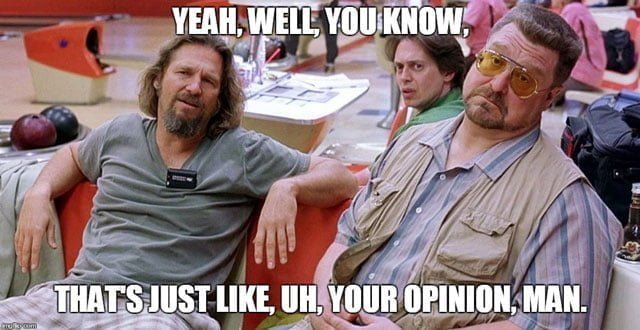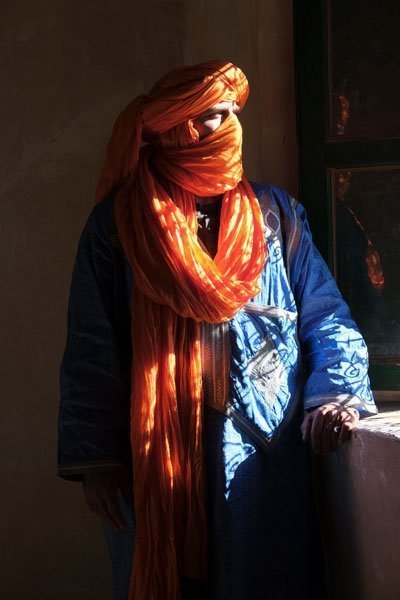Disclosure: This post may contain affiliate links. I earn a small commission of product sales to keep this website going.
Fstoppers, king of clickbait articles, recently published 29 unpopular photography opinions from industry pros. It captured a lot of comments and shares from photographers who disagree with these opinions, which is exactly what the website wants to boost their rankings.
And I’ll bite by talking about it in this dedicated rant/post too, even with an equally clickbait title. I was going to write something on this topic anyways, this just sped up the publication.
While I agree with many of these opinions, there’s just one that’s been eating at me. And that’s number 28.
“Not using post-processing such as Photoshop is not a high ground. It is a choice to sacrifice your quality because you are lazy.”
https://fstoppers.com/originals/what-your-unpopular-photography-opinion-here-are-29-industry-pros-361233
Okay, I don’t disagree with this entire statement. If this “industry pro” had left it at, “not using post-processing such as Photoshop is not a high ground. It is a choice,” I would have completely 100% agreed and never thought twice about it.
It’s the last part, the sacrificing quality because you’re lazy part that got me, and should get you too if you care about photography at all.
So here are my opinions on this opinion. I want to say that my opinion is right and their’s isn’t, but that’s the thing about opinions. I can’t do that, so you decide.
*Like the quote, I will be using “Photoshop” to generically refer to post-processing programs.
What makes photography great is the potential for unique interpretations
Put 100 photographers in front of a scene and you’ll get 100 interpretations (hopefully).
Some will be shooting in black & white, some in vibrant color, some in muted color, some at wide apertures, some at small apertures, different focal lengths, etc etc.
What does this have to do with my beef with this opinion? Photography is all about how a photographer interprets the scene and composes the elements of that scene into their frame.
Photoshop shouldn’t have to be a part of this thought process for everyone.
Creativity happens at different points of the process for different photographers
For some photographers it’s all about stalking the scene for hours, waiting for the right light, getting in the correct position, and opening the shutter when the moment is right. The light that the sensor (or film) records is what they get and that’s the end of it. And some photographers can create stunning work like this.
For other photographers, it’s all about how they can stretch the boundaries of imagination, creativity, and technology with post-processing programs. And some photographers can create stunning work like this.
And then there are photographers who combine both of these approaches. You guessed it, some photographers can create stunning work like this.
Not everyone is shooting for commercial clients
Some professionals have to post-process photos. Industry standards dictate that fashion photographers remove blemishes and stray hairs. Food photographers process photos of food to make it look as tasty as the factory actually processes the food to give it addictive flavor.
And then there are professionals in the field, mostly working for news outlets, who don’t have the time or opportunity to post-process their photos. They are required to think about everything in their frame before pressing the shutter, to make sure that the photo doesn’t need any post-processing, because their deadline was 10 minutes ago.
Does that make them lazy or bad photographers? I think quite the contrary because of the responsibility they have to get it right at capture.
Post-processing can be a massive waste of time
We’ve all done it, right? There’s that one photo that we just play around with for hours upon hours at the computer.
Instagram aesthetics have inappropriately placed this expectation upon photographers to process their photos for as many “likes” as possible. No, not everyone falls for that.
But I think that there’s some truth to the statement that photographers don’t always process photos for themselves, but rather for an audience, even if they don’t have a client.
I’m not saying that post-processing is a waste of time, but it can be, because in today’s competitive environment we don’t always know when to stop. Especially in the digital age where we can take a hundred photos in just five minutes.
I’ve actually spent a lot of time perfecting my in-camera presets so that the JPEGs that come out of it look like what I would have done to the RAW file. Fujifilm cameras allow for extensive preset customization. Even if I do have to process the RAW file, I’m already halfway there.
Learn how to get the perfect Fujifilm in-camera JPEGs here.

Photoshop makes people lazy, not not using Photoshop
Saved my favorite for last. No photographer should ever put their camera up to their face with the default mindset – whether conscious or subconscious – of, “just take the picture and fix what you don’t like in post-processing.” Come on, that’s lazy.
Why pay attention to what’s actually in your frame and how you expose it when you can just take care of it on the computer? Didn’t notice the telephone pole growing out of your subject’s head? That’s because you were lazy when you composed your photo, knowing you can fix almost anything on the computer.
Who’s the lazy photographer – the one who doesn’t need to open Photoshop because their photo was perfectly arranged at capture, or the one who has to open Photoshop because they didn’t put in the effort earlier?
The larger problem with this opinion

There’s so much to learn about making a great photo already without putting post-processing software into the mix. Now new photographers have to learn RGB curves and luminosity masks? They should be concerned about learning photography first, not post-processing.
Pros need to offer techniques, not absolutes. A real professional helps new photographers achieve the vision of that new photographer, not the vision of that professional.
“Influential” photographers owe it to the beginners to tell them there’s no wrong way to treat a photo after capture.
Do it both ways
I do spend time working photos in Lightroom and Capture One. In fact, I spend a lot of time doing this. I finesse these photos as much as I can. But they’re for other people.
For my personal work, I try not to use any post-processing as much as possible. This forces me to think about everything in the frame and every aspect of the exposure. This approach is the antithesis of lazy.

And you know what? Doing this will only make me a better photographer. I will never get better if I rely on the computer.
I actually enjoy the challenge of perfecting the highly customizable presets and then forcing myself to get the picture right at capture. It’s fun and a very satisfying feeling, which I place a lot of value on.
I’m not saying I’m better than anyone for doing this. I’m taking no high ground. And I’m not lazy or sacrificing quality because I don’t want to post-process every photo.
Am I wrong? Who else is up for this challenge?


DCraig
Tuesday 14th of May 2019
I've so much further to go on this journey (like your awesome train rides), I get frustrated by and have largely tried to ignore opinions that trend toward dogma. I get sucked into the clicky articles now and again, and can only think, really? Why does it matter? You make some good points for both ways and have cool goals depending on your needs and desires. It's all good advice. Although I've never really been one to randomly shoot and think "I'll fix it in post," I know I'd probably improve leaps and bounds if I slowed down and thought more about composition and exposure (etc) while the camera is in hand (or on tripod). I'm never patient enough and lack the instinct; am I lazy if I go too fast?! But if I look back at my galleries, it is clear that those that stay my favorites needed only some basic nudges to the raw file.
In your fujifilm presets and custom sets, is that a jpeg output then? Or is it a raw file that Capture One applies some meta-data to?
Most unpopular opinion: Do it however you want to. Get out, have fun, do good.
John Peltier
Thursday 16th of May 2019
I like unpopular opinions :) It all becomes second nature so long as you're getting out there and pressing the shutter enough. You start to "do" all those things without having to think about them and then there's no need to fix any of it on the computer later (at least, not as much). My Fujifilm presets output a JPEG with the settings I dictate, but I also record the RAW file at the same time. Capture One doesn't apply any of the JPEG settings from the camera so I'm free to start from scratch with those. Though I have created Capture One styles to match my in-camera styles. That way, if I like the JPEG but it needs a little fixing, I can apply that style in Capture One, get close to how the JPEG would have looked, then make some minor corrections.